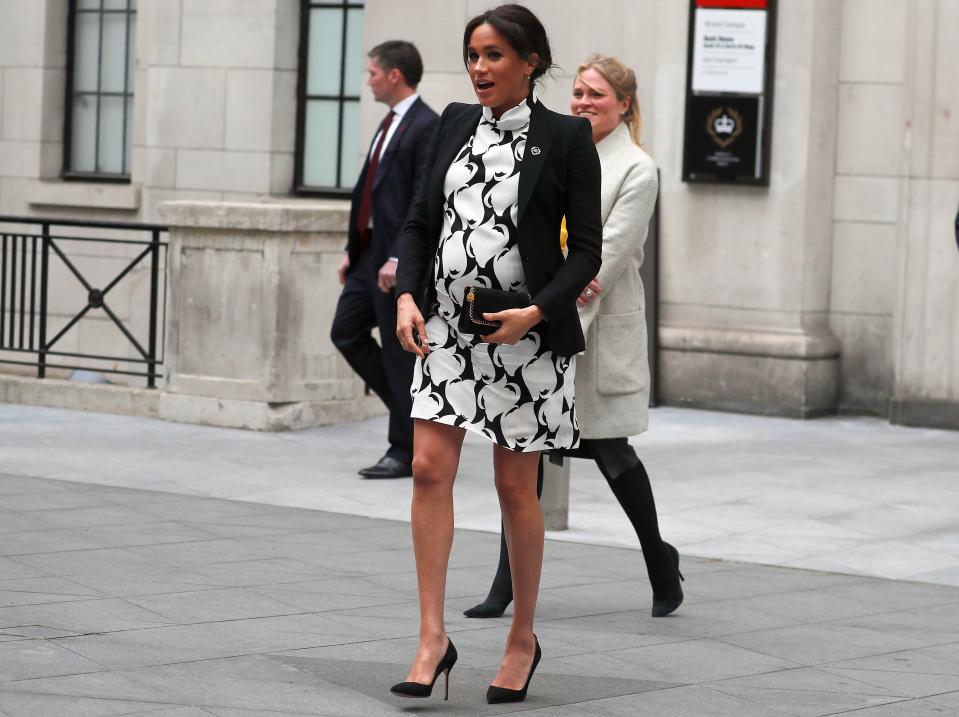Duchess Meghan's pregnancy has sparked a conversation about doulas: What you should know

As the world eagerly awaits the arrival of Prince Harry and Duchess Meghan's royal baby, rumors have run rampant. One persistent topic is whether Meghan will have a doula at the birth, as reported by at least one U.K. tabloid.
We don't know for sure of the duchess' decision, but hiring these pregnancy coaches seems to be gaining momentum.
Notable celebrities such as Jessica Biel, Nicole Kidman and Erykah Badu have had doulas.
We know a lot about obstetricians and midwives, but what exactly does a doula do?
Want news from USA TODAY on WhatsApp? Click this link on your mobile device to get started

What is a doula?
Doulas are not medical doctors, but they provide emotional and physical support during a pregnancy all the way through childbirth and postpartum.
"People choose to have doulas because of the knowledge we have of births, we know what’s coming. Your loved ones, they cannot do that, and the reality is that your loved one is having a baby too," says Ravae S.M. Sinclair, the president of doula-certifying organization DONA International.
"Even if you go to all the classes, read all the books, a lot of that stuff you don’t know how it applies in the moment, and you might forget because there’s a lot of pressure," she added.
What does a doula do?
Lori Bregman, a doula to the celebrities, says doulas can help families create birth plans and educate them on childbirth.
They can also be participants in labor and delivery by "creating a sacred space in the birthing room." This could include aromatherapy, flameless candles, soft music and offering comfort measures, labor positions and helping with pain management.
"Doulas also advocate for the mother and her partner and can help facilitate better communication between the parents-to-be and their caregiver so that way they can just focus on the birth and being present in the moment."
Aside from having an extra person there for emotional support, Sinclair says that having a doula results in fewer medical interventions.
In one study analyzed by NPR, doulas helped reduce the number of preterm births by almost 2% and C-sections by more than 10%.
Can a doula help after the baby has arrived?
Bregman notes that doulas also offer postpartum support and allow mothers to rest while they're healing from childbirth. She says that they will often come in to check on families, do light housework, watch the baby so mom can shower and sleep and bring food.
But beyond those daily tasks, people often hire doulas to "survive," Sinclair said, pointing to the recent media coverage surrounding maternal deaths in the United States.
"Doulas often serve as witnesses to make sure that the care that is being provided is elevated and optimal."
What is the difference between a doula vs. midwife?
The main difference is that doulas are not medically trained. They are there simply to offer guidance and support throughout the pregnancy, Bregman says.
"Doulas can help you birth your baby at home, at birthing centers, in hospitals, with or without pain medication — even if you have a C-section or choose to have your baby in the woods, a doula can help wherever or however you choose to have your baby," Bregman says.
Midwives, on the other hand, are medically trained and are generally tasked with the same duties as an OBGYN, but they will likely spend more time with the birthing family than a doctor would, Sinclair said.
And doulas do not replace doctors or midwives.
"That is not our goal ever," she said.
Bregman agrees. "Doulas work as a team alongside midwives, doctors and nurses, as we all have our own parts to play."
Like All the Moms?
Connect with us on Facebook.
READ MORE
This article originally appeared on USA TODAY: Duchess Meghan's pregnancy has sparked a conversation about doulas: What you should know
Solve the daily Crossword

